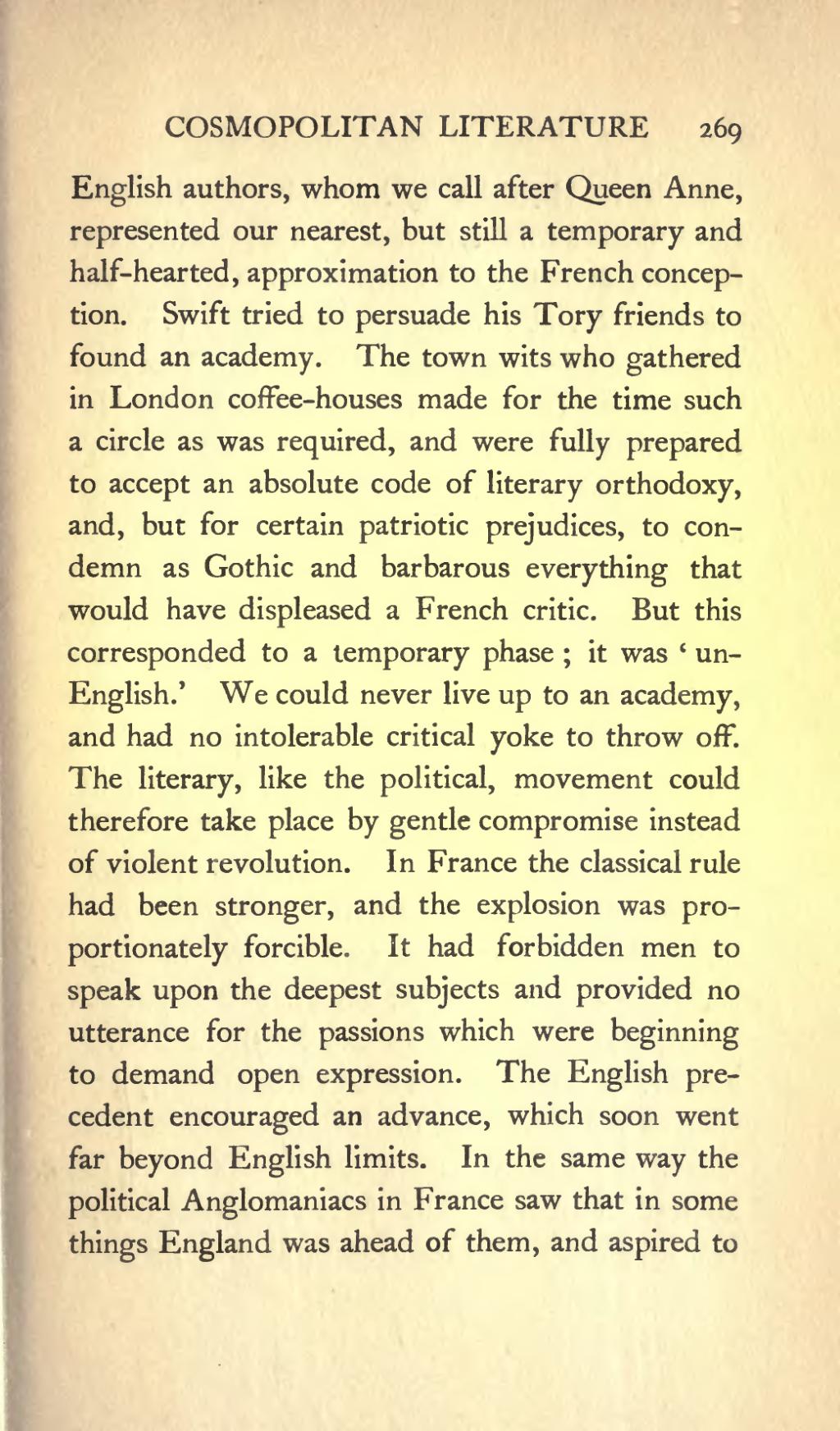English authors, whom we call after Queen Anne, represented our nearest, but still a temporary and half-hearted, approximation to the French conception. Swift tried to persuade his Tory friends to found an academy. The town wits who gathered in London coffee-houses made for the time such a circle as was required, and were fully prepared to accept an absolute code of literary orthodoxy, and, but for certain patriotic prejudices, to condemn as Gothic and barbarous everything that would have displeased a French critic. But this corresponded to a temporary phase; it was 'un-English.' We could never live up to an academy, and had no intolerable critical yoke to throw off. The literary, like the political, movement could therefore take place by gentle compromise instead of violent revolution. In France the classical rule had been stronger, and the explosion was proportionately forcible. It had forbidden men to speak upon the deepest subjects and provided no utterance for the passions which were beginning to demand open expression. The English precedent encouraged an advance, which soon went far beyond English limits. In the same way the political Anglomaniacs in France saw that in some things England was ahead of them, and aspired to
Page:Studies of a Biographer 4.djvu/283
Appearance

